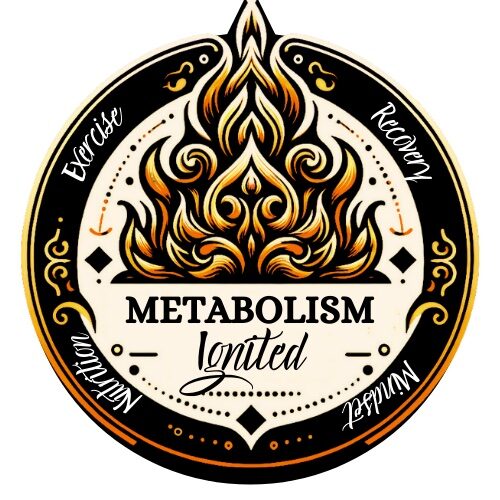Relaxation is key to effectively managing stress and maintaining a healthy life. In today’s fast-paced world, stress can take a toll on our physical and mental well-being. In this informative blog post, we will explore a variety of tips and techniques for stress management, including natural ways to relieve stress and healthy strategies for women. By implementing these effective stress relief methods, you can enhance your overall quality of life and achieve greater peace of mind. Let’s dive in and discover how to manage stress effectively for a happier and healthier you.

Key Takeaways:
- Practice Mindfulness: Incorporate mindfulness meditation and deep breathing exercises into your daily routine to help reduce stress and increase relaxation.
- Stay Active: Engage in regular physical exercise such as yoga, walking, or swimming to help release endorphins and combat stress effectively.
- Healthy Lifestyle Choices: Prioritize a balanced diet, regular sleep schedule, and adequate hydration to support your body’s ability to manage stress naturally and effectively.
Identifying Stress Triggers
Common Causes of Stress
Before exploring effective stress management techniques, it is crucial to identify the root causes of stress. Common triggers include work pressure, financial worries, relationship issues, and health concerns. These factors can manifest in physical symptoms like headaches, muscle tension, and fatigue.
Recognizing Personal Stressors
Triggers can vary for each individual, making it crucial to recognize personal stressors. Any situation or event that leads to feelings of overwhelm, anxiety, or irritability can be a stress trigger. It’s important to pay attention to these cues and address them proactively to avoid negative impacts on overall well-being.
Effective Stress Relief Techniques
Some stress management techniques are more effective than others when it comes to finding relief from the burdens of everyday life. Learning how to manage stress effectively is crucial for maintaining overall well-being and inner peace. By implementing these proven stress relief tips and techniques, you can significantly reduce the negative effects of stress on your mind and body.
Deep Breathing Exercises
Deep breathing exercises are a simple yet powerful way to calm your mind and body, promoting relaxation and reducing stress levels. By taking slow, deep breaths, you can activate the body’s relaxation response and lower cortisol levels, the stress hormone that can wreak havoc on your health.
Progressive Muscle Relaxation
Breathing exercises can complement the practice of progressive muscle relaxation, where you systematically tense and then release each muscle group in your body. This technique helps to release physical tension and promote a sense of deep relaxation, making it an effective tool for stress relief.
Mindfulness Meditation
Effective mindfulness meditation involves bringing your awareness to the present moment without judgment, allowing you to observe your thoughts and emotions without getting caught up in them. By practicing mindfulness regularly, you can enhance your ability to manage stress, boost self-awareness, and cultivate a sense of inner peace.
Physical Activity for Stress Management
Benefits of Exercise for Stress Relief
Regular physical activity has been shown to release endorphins, the body’s natural stress-fighting hormones, which can help alleviate feelings of anxiety and stress. Exercise can also improve your sleep quality, boost your mood, and increase your overall energy levels, leading to a more positive outlook on life.
Yoga and Tai Chi for Stress Reduction
Stress can also be effectively managed through mind-body exercises such as yoga and Tai Chi. These practices focus on breathing techniques, mindfulness, and gentle movements that can help calm the mind and release tension in the body, promoting relaxation and stress relief.
Outdoor Activities for Stress Relief
Engaging in outdoor activities such as hiking, gardening, or simply taking a walk in nature can also provide effective stress relief. Spending time in natural settings can help lower cortisol levels and reduce feelings of tension and anxiety, offering a refreshing and rejuvenating escape from daily stressors.
Healthy Coping Mechanisms
Journaling for Stress Release
Journaling can be a highly effective way to manage stress and boost emotional well-being. Writing down your thoughts, feelings, or even keeping a gratitude journal can help you process emotions and alleviate stress. Research shows that regular journaling can improve mood, reduce anxiety, and enhance overall well-being.
Creative Expression for Emotional Well-being
Engaging in creative activities such as painting, drawing, or crafting can help you express emotions that may be difficult to put into words. The act of creation itself can be therapeutic, allowing you to focus on the present moment and channel your energy into something positive.
Building a Support Network
The presence of a strong support network is vital for managing stress effectively. The connections you have with others can provide emotional comfort, practical advice, and a sense of belonging. Studies have shown that individuals with supportive relationships tend to experience lower levels of stress and better overall mental health. The feeling of being understood and supported can significantly impact your ability to cope with life’s challenges.
Time Management for Stress Reduction
Prioritizing Tasks for Efficiency
Efficiency is crucial when it comes to managing stress effectively. One way to enhance efficiency and reduce stress is by prioritizing tasks. Start each day by listing your tasks in order of importance. Focus on completing high-priority tasks first, as this can help you feel more accomplished and reduce feelings of overwhelm.
Setting Realistic Goals and Boundaries
Realistic goal-setting and boundaries play a key role in stress management. By setting achievable goals and boundaries, you can avoid taking on too much and feeling overwhelmed. Remember that it’s okay to say no to additional responsibilities that may add unnecessary stress to your plate.
Effective Use of Breaks and Self-Care
Effective use of breaks and self-care is necessary for managing stress effectively. Taking short breaks throughout the day can help refresh your mind and improve productivity. Use these breaks to engage in activities that promote relaxation, such as deep breathing exercises or a brief walk outdoors.
Prioritizing self-care activities like exercise, proper nutrition, and adequate rest is crucial for stress relief. Remember to prioritize your well-being and make time for activities that bring you joy and relaxation. Investing in self-care is a valuable stress management technique that can have long-term benefits for your overall health and well-being.
Nutrition and Stress Management
Foods that Reduce Stress and Anxiety
Consuming foods that are rich in vitamins, minerals, and antioxidants can help reduce stress and anxiety levels. Foods such as dark leafy greens, nuts, seeds, and berries are known to have calming effects on the body and mind. Additionally, incorporating omega-3 fatty acids found in foods like salmon and flaxseeds can help reduce inflammation in the body, which is often associated with stress. By making mindful food choices, you can support your body in dealing with stress more effectively.
- Affiliate Product: Nature’s Way CalmAid Lavender Supplement – A natural supplement to help reduce stress and promote relaxation.
Avoiding Stimulants and Sugary Foods
Avoiding stimulants such as caffeine and sugary foods can help prevent spikes in blood sugar levels, which can worsen feelings of stress and anxiety. Instead, opt for whole foods that provide sustained energy and nourishment to support your overall well-being.
Staying Hydrated for Optimal Health
Maintaining proper hydration levels is vital for managing stress effectively. Dehydration can lead to fatigue, irritability, and increased feelings of stress. By staying hydrated throughout the day, you can support your body’s natural functions and promote optimal health. Plus, incorporating hydrating foods like fruits and vegetables into your diet can also contribute to your overall hydration levels. By prioritizing hydration as part of your stress management routine, you can set yourself up for success in navigating life’s challenges with resilience and vitality.
Summing Up
With these considerations in mind, it is imperative to prioritize effective stress management techniques in our daily lives. By implementing stress relief tips and techniques for stress management, we can achieve a healthier and more balanced lifestyle. Whether you are a woman looking for specific stress management tips or seeking natural ways to relieve stress, taking proactive steps towards managing stress effectively is crucial for our overall well-being.
